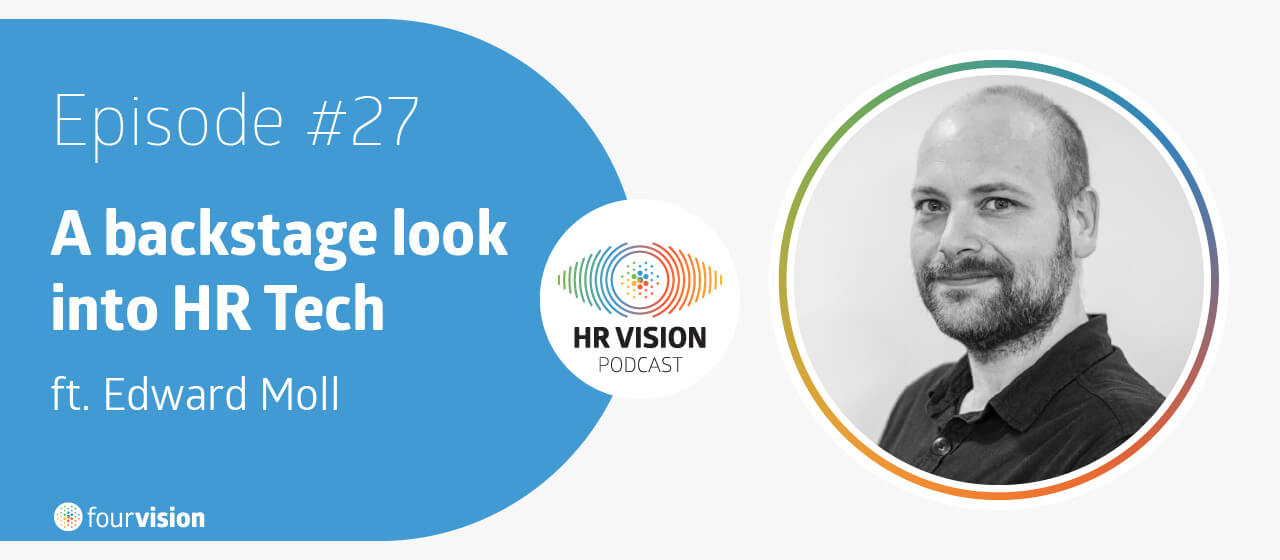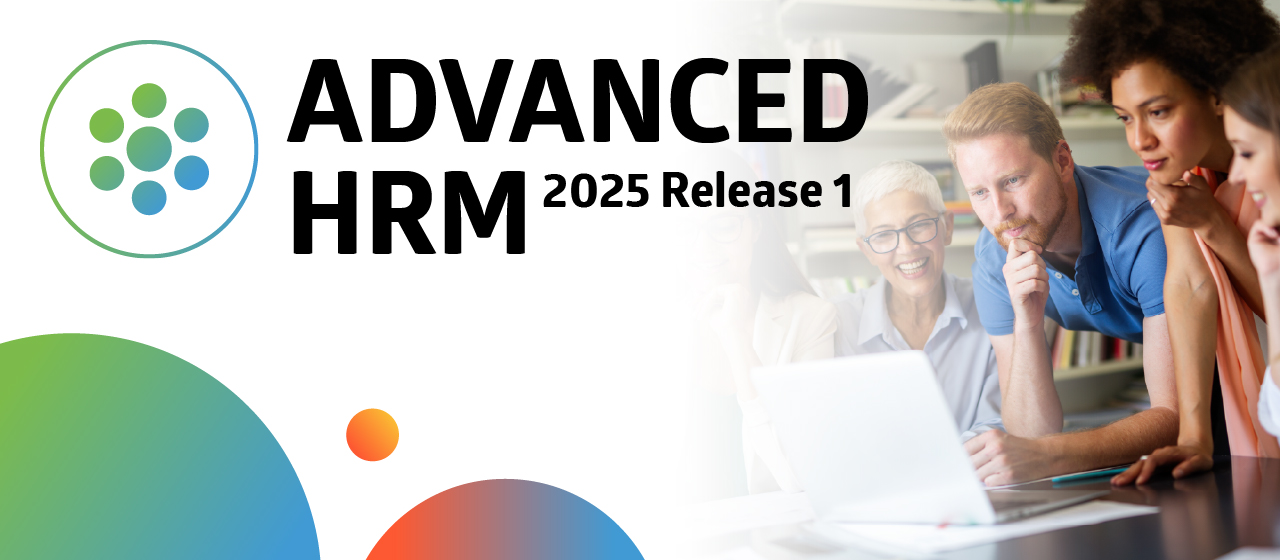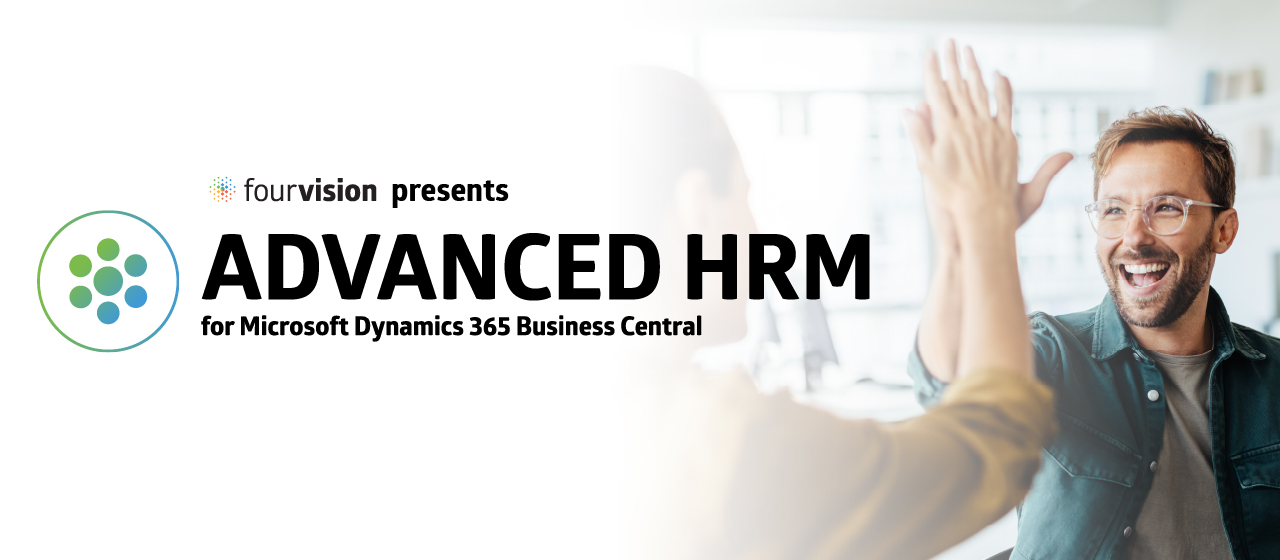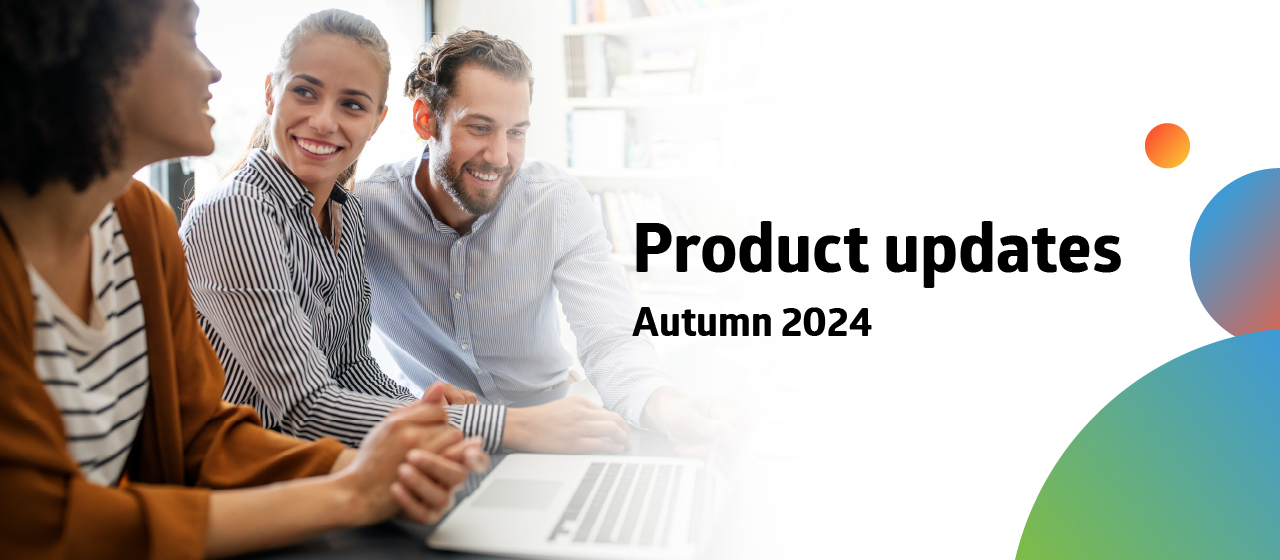HR Technology needs talented people to develop it. And that’s the case with our guest this week.
Edward Moll is the Lead Product Engineer at FourVision and one of the most experienced members of our team. He’s the technical responsible for our entire product stack.
In this episode we got technical and explored that side of the solutions we provide. Enjoy it!
Ivo:
Hey everyone, and welcome to the HR Vision podcast. I'm your host, Ivo, and every week I'm going to have a conversation that matters about HR. This week I have Edward Moll with me.
Welcome Edward! How's it going?
Edward:
Hi there, going great!
Ivo:
Awesome. That's good to hear. Edward is the lead product engineer at FourVision and one of the most experienced members of our team. He's the technical responsible for our entire product stack. So today we're going to get technical and explore that side of the solutions we provide. So yeah, let's get to it.
Edward. Let's start like we start with every guest. Give us a small introduction about yourself and what you've been doing.
Edward:
Yeah, I'm round for 10 years with FourVision. Prior to me FourVision was working for three or four years already, and working most likely with only externals. And they brought me in to set up the technical department and bring the development to FourVision itself. So when I came in first thing to start with was literally building up servers in the old days. For development and bringing the solutions that were over the place to our own development stack, and start from there.
Ivo:
All right. And you always had a background in technical engineering or development? That was always your path.
Edward:
Yeah, correct. I always worked with the development stack also on previous jobs started in the Microsoft area. Actually the Axapta area. I remember those.
Ivo:
So always with Microsoft or did you explore the other other stacks? Other products?
Edward:
Most likely, always with Microsoft Tech, but I'm also familiar with the Linux or Unix BSD stacks.
Ivo:
OK, alright. Interesting. So you're the leading product engineer here at FourVision. So what do you do? You know, in your in your day to day job and what gets you most excited about?
Edward:
Today, I do most of the time talking. Talking with engineers, solving their issues, their challenges, and facing and reflecting how it could work, how we should solve it. Talking with the Microsoft people, who we do also development for. Talking: It starts in the morning, goes round the clock. I first start in India, then do the Netherlands and at the end maybe some late night sessions with Microsoft in America. It goes round and round.
Ivo:
Alright, that still excites you, or do you prefer being the one typing in the code?
Edward:
Uh, only the hard pieces. What I like to do is to develop sometimes an SDK (Software Development Kit) or something that the developers can then take away and implement all over the place. OK, and what can you tell us about the team structure? You already mentioned India and the US. I know, but people listening might not. So how is the team distributed and how many people do you have and doing what?
Hard questions... how many people do we have?
Ivo:
I don't need to know exactly, but you know, the structure of the team.
Edward:
So, we have an R&D department where Peter's head of R&D, me, we have Matthew on board today and we have Pankaj. Those are the leads more or less. And then we in India a developer team around 10 developers or so, a bunch of testers around it that are developing the Web App stack. We have an engineering team in the Netherlands that is mainly responsible for integrations and implementations. And the HR plus stack, and we have a development team that is doing for example, the things that we're doing for Microsoft but also sometimes for Phenom where we are hired to do some things and so on. So we have different teams doing different things all over the place.
Ivo:
And you're basically overseeing if everything is going is going well, thinking about like the solutions for some problems that might come up. Those types of things?
Edward:
Yes, I'm trying to keep track of all the developments going on.
Ivo:
OK, OK, that seems like a big task. Before we go into the solutions we provide. Microsoft to Web Apps. I want just to ask you one one thing, before most of those challenges: problems that come up, stuff that you need to develop or solve, they come from the users? From the customers or do they also come from our test team, or is it a mix? How does that work?
Edward:
It's a big blend. I'm thinking most likely in silos; product silos. You have one web app with characteristics, you have another one with another set of characteristics. And you have over also problems over the whole stacks. And if I talk web apps, then I'm talking to FourVision web apps. But I also talk sometimes about the Dynamics product suite. That's a different set of problems going on. Yeah, per product I normally look, then we have per product - We use Sprint planning obviously.
Put in the development work together. Cross actually everything that goes on in that single product. And then different input sources so it can be coming from a project where there is some needs, it can come from a general development like availability issues, or just product innovation that is happening.
Ivo:
OK, that's good to know. Let's move on to the products. Big question: What are, in your view, the main benefits of the system Microsoft build for HR? And that we complement with our with our web apps? What are the main benefits you see?
Edward:
Yeah, the seamless integration we bring. We are obviously on the edge of the products of Microsoft. We even help them develop this. So we already know where some gaps are for a breed of customers. Whereas Microsoft is trying to keep it as general as possible, we are going the extra mile that is for the population of customers that need it.
Knowing that they need to complete the process, maybe outside Dynamics with our web app, and then bring that back into the process of the Dynamics suite. That that's where we try to keep up. And bringing that extra process, for example with payroll, where Microsoft is aiming to have a real time integration payroll. Where legacy payroll systems most of the times use period driven ones. And we facilitate that with the Payroll Web App, for example, to bring back a period structure into the process.
Ivo:
OK, that's a good example. You have mostly experience with Microsoft, but if you have with other products, can you compare like how easy it is, or if it is easier to integrate in a company or system like Dynamics or our Web Apps, comparing to other tools that you that you experienced before?
Edward:
I strongly believe that what we bring with our web apps, like HR request web app for example, you can build with Power Apps and Power Automate. You can make it work. Absolutely. Implementing a Power App or a solution built on top of the power app stack is hard because we need to reinvent everything we did. And with the web apps we have a standardized, highly customizable way of implementing a solution and a process flow, and supporting that process flow with all kinds of standard out-of-the-box tooling we have.
With the Power Platform you can build same solution, absolutely. But then you come to maintenance. You come to evolving. Microsoft is constantly evolving. And you need to adapt your products or your solution, and that's what the kind of service we deliver with the web apps. Keeping them up to date, keep them evolving and innovative.
Ivo:
Yeah, totally understandable. That's actually a good segue for the question that I had for you, which is very technical, but you already mentioned these Power Apps and Web Apps. For people that don't understand, you know a lot of technical stuff, only just a bit. Can you explain the difference between our web apps, or the web apps that we provide to complement the Dynamics suite, and the Power Apps, which is something that Microsoft provides. So can you explain the difference?
Edward:
Power Apps, we call it a line of business solution, LOB. So it's highly configurable. It's bringing a business process to life at the customer. But you need to have some technical skills to build it and maintain it. Think about adding a field or adding a confirmation dialog somewhere, then then it will be great. Or adding an extra form that they need to enter fine.
But bringing a complete workflow process in place: Then you'll get really quickly stuck. Because you can build that workflow, but that will be a static workflow.
Ivo:
Yeah, I understand. So it doesn't give you the dynamic and the potential unless you have like a big team of developers that actually can do that for you internally and can keep them updated. Otherwise it's not that highly customizable. I guess it's quite static.
Edward:
Highly customizable but not maintainable. That's where the big difference comes in.
Ivo:
Yeah, and these power apps, customers can get them and at any time? It's over a licensing? How does that work?
Edward:
There is licensing involved as well. Yeah, at the end you're paying for a product suite that is highly customizable, highly configurable. And also maintainable. And you need to maintain it and you're paying a license to have... Actually when I compare the power stack in the real world, you are ending up with a good old Microsoft Access. You can build reports with it, you can build forms with it. You can build table structures with it, with Access. And that's actually what they brought with the Power stack. But it's now in the cloud.
Ivo:
OK, and then the web apps are totally different? Because we've been working for a long time... Please keep going.
Edward:
So it's real .NET code, it has a SQL database behind it. It has a complete versioning system, maintenance, deployments, connections, integrations. So we even have an open data stack o-data stack behind it that can be utilized to build again a Power App on top of our web apps.
Ivo:
Yeah, and the Web Apps are also from what I understand, they're already targeted. To one specific functionality like Document Management or HR requests, timesheets, those types of things. So you don't need to build all that, everything is there.
Edward:
Don't forget the performance cycles. With the Performance web app you can uptake the employee, do the periodic reviews with them, discuss salary increases, involve managers with the process and at the end of the process you get new salary records out of it and push those back into the Dynamics suite. And then take them up with the Payroll app to bring into the payroll or whatever.
Ivo:
Yeah, so it's a completely other ball game. I think the web apps they have a lot of work behind them. And yeah, when you compare it to power apps indeed yeah, power apps are just something that you need to configure.
Edward:
It depends on the problem you want to solve, and this is a process you want to solve. That's the difference.
Ivo:
OK, you know in your work I wanted to ask you. You're solving all these problems. You're dealing with a lot of different stakeholders, requests probably coming from everywhere. What are the most common challenges that you face in your area?
Edward:
If there wasn't one common, then I was not needed. The common anomaly is that it's constantly changing the questions. When I get a question, it should be something new always, and then I can help them. If it's a repeating question, then we should actually solve it already somewhere. So when I got a question twice and I'm going to think: "OK, how can we make this better to prevent the third time?"
Ivo:
Yeah, that's the development mindset, of course. So I would say to resume like the most challenged or the challenges is actually the fact that it's always new challenges every day. There's always a different question question popping up. That's what you mean, right?
Edward:
For example, Microsoft blocking emails on SMTP. OK, then we need to figure another way to make sure that it's sustainable and get ahead of the ball game before the customers are facing that issue. Or yeah, actually always keep up to date. That's the big challenge to prevent issues at customers when they are not there. So living in the future.
Ivo:
OK, part part of keeping up to date. I have an extra question here which is what do you think you know for someone in developing or working in your area? What do you think are the most important traits to have? Like, that mindset of constantly challenging yourself. You know keeping up to date to the trends and the things that are changing in this in the software is what do you think are the most important traits to have.
Edward:
Yeah, be aware that things get lost in translation. One of the most important things is to get the confirmation right, so when you start on a piece of development think: is this common sense what you're doing? And does it translate really in a real life scenario to usability? So asking five times confirmation, why do you want this? Why do you want this? Why do you really want this? And at the end you end up with the solution that the customer desires.
Before you know, you are building something that is not reflected, that's maybe lost in translation somewhere in-between with consultants; the one who's writing down the requirements. But at the end it's common sense. Is this usable? Completing the process for the customer, the end user, the one on the work floor is going to use it. Not the HR manager who described it to you, not the one that the consultant translated to you. Always place yourself in the shoes of the one doing the order picking, need to request leave and absence and make it usable.
Ivo:
OK, that's great insight. So let's look a bit into the future. I know that you're developing new things every day, but are there any things you see in the future of our technology? You know any interesting trends that you anticipate.
Edward:
Yeah, I'm living in the future so that's not tough! But for me to ask, what's the future? Because for me, most of the things are reality already, maybe not at the customer, but I see that. I see development coming, that where you are now doing a Teams session - I'm talking to you on a screen doing a video chat. That will change. You will go more to a VR world where you having a crowd of people sitting together in a room; virtual room, then doing the discussions over a virtual table. The so called metaverse.
I think that will be introduced. And job interviews will be introduced somewhere else. I see there some somethings coming in.
Ivo:
Really? Like the Metaverse? Do you think it's something for the next five years or so?
Edward:
Yeah, I really believe that will be pushed... Pushed, maybe not everybody is waiting for it. But to become reality and interviews and conversations like we have now.
Ivo:
Very interesting. I think it's the first time we had someone talking about the Metaverse. Well, it is indeed something very recent and you always on top of the trends. So there you go.
OK. I don't know if you have if you have anything to say else or besides what we what we discussed, but I just remember the one question two to you and this is actually going a step back a little bit. You you mentioned before that we have some developers and some team working with Microsoft. What, does that mean? You know, do we develop stuff for Microsoft and how are you involved in that?
Edward:
That's a good question, right? You kept the best for the last, I would say. I go way back to the days that I started with FourVision we had a module called HR Plus. It's still around by the way, it's still maintained. It is now in its fourth lifecycle or so. But one of the pieces we developed there is the Leave & Absence, and Time Registration.
Actually, the Leave and Absence I rewrote from scratch two times. So that's a little child of me - Leave & Absence, and it evolved into Dynamics 365 it went to HR plus, in a AX7 (D365) and it's bought by Microsoft as intellectual property. So the little child I made ten years ago called Leave and Absence is fully grown. Brought now into the Microsoft Stack, built in the core HR one and now brought back to Finance and Operations next year I think. We going to even extend that with the Sickness Registration and all kind of flavors we did on top of that.
So that's the thing to see. Growing from the little child I built 10 years ago within FourVision as one of the first products to a fully Microsoft Stack solution.
Ivo:
Amazing, that's amazing. Now I don't want you to reveal too much, but I have to ask, do you think? Do you have something in your back pocket that you think Microsoft will be interested in the shorter time?
Edward:
Hmmmm, I'm under NDA for that! But actually we sold more. So there were more FourVision products slide up in the Microsoft Stack. The upcoming two or three years even. I think that's a great way to end this conversation, very promising indeed.
Ivo:
Very exciting news as well, and I'm grateful for you for taking the time and speaking to me today, and I hope you enjoyed it.
Edward:
Yes, absolutely!
Ivo:
Alright, that's great. OK Edward, thank you so much for taking the time; for being here with us today. For people out there listening, stay safe and we'll see you next time!
Sign up to receive email updates
Enter your name and email address below and I'll send you periodic updates about the podcast.







